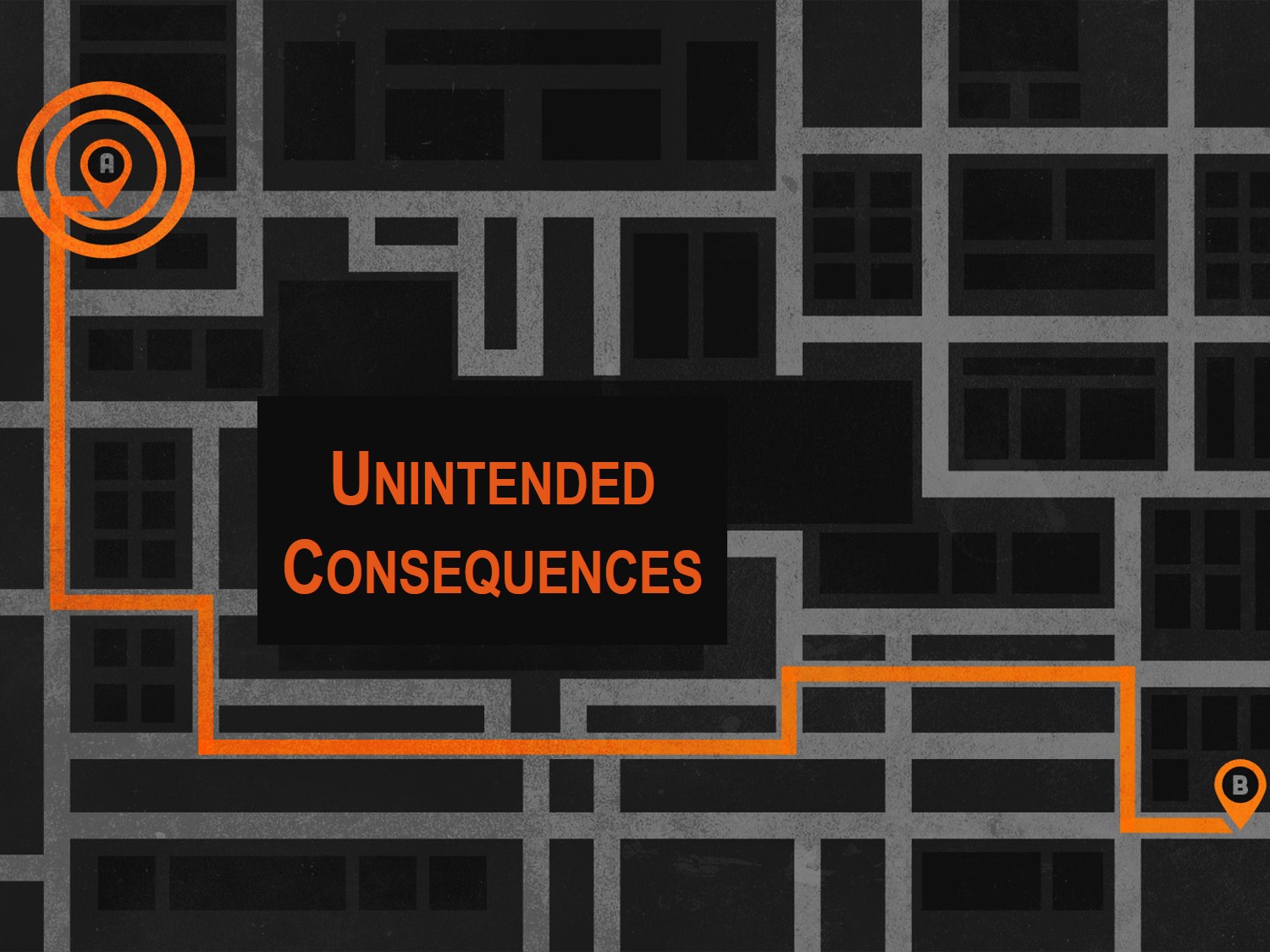Blog
Saved by Grace
Tuesday, November 05, 2019
During the singing last Sunday evening, Tyler led us in “O Come, All Ye Faithful”. That’s one of my favorite hymns, so after services, I went over to him and thanked him for doing so. As a result, we got to talking about the brethren who might object to singing such a hymn in worship because it’s commonly used as a Christmas carol.
Frankly, that objection has never made any sense to me. If we are using a hymn to worship in spirit and in truth, who cares if somebody else somewhere else has misused it? We need to pay less attention to the somebody elses and more attention to the truth.
I think this also is true when it comes to Bible teaching on grace. We know that false teachers have taken that teaching and corrupted it into a contradiction of Bible teaching on baptism. However, that’s not the Bible’s fault. That’s their fault. When we are teaching Bible truth on grace, then, we shouldn’t feel the need to fill that teaching with asterisks and disclaimers, like the Holy Spirit can’t speak for Himself. Instead, we should teach the truth without apology because God’s truth belongs to God’s people. Without further ado, then, let’s consider what the word says about being saved by grace.
One of the greatest Biblical texts on the subject is found in the early part of the book of Ephesians, so I thought it would be appropriate to work through that this evening. The context begins with Paul helping us with UNDERSTANDING OUR BLESSINGS. Let’s read here from Ephesians 1:16-19a. Here, Paul says that He wants the Ephesians, and indirectly us, to understand three things: the hope of their calling, the riches of their heavenly inheritance, and the greatness of God’s power.
This understanding might seem awfully abstract, but in reality, it’s something that’s critically important to the spiritual health of every Christian here. Ever asked a Christian if they’re going to heaven and get the reply, “I hope so”? Ever heard a brother say they know God has forgiven them, but they struggle to forgive themselves? Those are brethren who do not understand these three things. Because they don’t understand their hope, their inheritance, and God’s power, they are putting their trust in themselves instead of Him.
Brethren, it’s tragic when a Christian who should be rejoicing in God’s grace is miserable because of their own shortcomings! When it comes to salvation, we all need to take the focus off ourselves and put it on God where it belongs.
Next, Paul examines GOD’S WORK IN CHRIST. Look here at Ephesians 1:19b-23. Notice that this reading begins with Paul saying that the blessings from the last reading are in accordance with the power that God showed in raising and exalting Jesus. In other words, if we want a measuring stick to understand what God has done for us, we find that measuring stick in what He has done for Christ.
By any standard, God’s work in Christ is spectacular. When God’s work in Christ began, Jesus was nothing more than a corpse in Joseph of Arimathea’s tomb. Even His own followers thought He was a failure. However, God took a dead man, brought Him back to life, seated Him at His own right hand, put all things under His feet, and made Him the supreme head of the church. The One whom everybody thought was a failure was instead revealed as the King of heaven and earth, and His reign will last until the end of time.
That’s too much for any human being to do or even to contemplate. Nobody even imagined that God might do such a thing before He did it with Jesus. This is the God whom we worship and serve, brethren. We can look at His work in Jesus and know that the blessings He has stored up for us are literally beyond our ability to imagine too.
In case we have any doubts about this, Paul then goes on to compare God’s work in Jesus to HIS WORK IN US. This comparison appears in Ephesians 2:1-6. Let’s pay attention to how closely parallel these two works were. Just like Jesus was dead when God started with Him, we were dead when God started with us. However, in our case, we weren’t merely physically dead. We were spiritually dead in our sins. We were so steeped in evil that we had corrupted our very natures with our sin. We were beyond hope.
However, just like God gave life to dead Jesus, He gave life to us in our spiritual death. Because of His great mercy and love, even though we did not deserve to live, He made us alive anyway. Third, just as God seated Jesus in the heavenly places after His resurrection, He has seated us in the place of honor right next to Christ.
Why did God do all of these things? It’s so that our redemption can proclaim the riches of His grace forever. A powerful earthly ruler might spend his earthly riches on building some monument to his greatness. Think of the Pyramids or the Taj Mahal. God, though, lavished His spiritual riches on us so that for eternity, anybody who looks at us can know how great He is. We are a monument to His greatness, and we always will be.
In the final section of this context, Paul explores the contrast between GRACE AND WORKS. Let’s finish our reading with Ephesians 2:8-10. I’ve had people use vs. 8-9 on me to “prove” that you don’t have to be baptized to be saved, but in context, that’s not Paul’s point at all. Instead, he is explaining that our salvation glorifies God because God is responsible for it and we aren’t.
This makes perfect sense. Even in earthly terms, we don’t look at the Taj Mahal and think of the Pharaohs because the Pharaohs didn’t build the Taj Mahal. In the same way, if our own good works were enough to justify us, our self-justification would not glorify God. He would not be responsible. We didn’t make ourselves righteous so that we could boast in ourselves. Instead, God made us, so that His workmanship would proclaim His glory. Our hope, then, is not in ourselves, but entirely in His grace.
However, that doesn’t mean that we can take God’s grace as an excuse to live however we want and then come scampering back to take a grace bath. Instead, though we are not justified by our good works, we are created for good works. If we choose not to walk in those good works, we no longer glorify the One whose grace redeemed us. We’re putting Him to shame instead, and believe me, brethren, putting the living God to shame is not something any of us want to do!
Summaries, Job 42-Psalm 119:32
Monday, November 04, 2019
Job 42 concludes the book. It begins with Job’s reply to God. He acknowledges that in questioning God, his mouth was outrunning his understanding. From now on, he will be content to listen to God, and he repents of questioning Him.
In response, God accuses Eliphaz, Bildad, and Zophar of not speaking the truth as Job has done. He tells them to make a burnt offering and get Job to intercede for them, which Job successfully does. After he does so, God blesses Job, giving him twice as much as he had had before and 10 more children to replace the ones who had died. At the end of the book, Job dies in honored old age.
Psalm 117 is the shortest psalm in Psalms, as well as being the shortest chapter in the Bible. It urges everyone to praise God because of His steadfast love (the Hebrew word hesed, which is untranslatable but means something like, “God continuing to love us because He promised He would) and faithfulness.
Psalm 118 is a processional psalm with significant Messianic overtones. It begins with different Israelite groups (probably arranged by group) being called upon to praise God. The primary singer of the psalm then declares that God has rescued him from his enemies, so he will never be afraid of anyone as long as God is with him. His enemies pressed him hard, but he defeated them. Likely, different groups are singing the content of 118:15-16. The primary again affirms that God has protected him, and then has a discussion in song with the people who are supposed to open the gate for him (vs. 19 and 21 are the primary singer; vs. 20 and 22-27 are the chorus). The psalm concludes with both singer and chorus praising God.
Several verses from this psalm are quoted in the New Testament. 118:22 is quoted widely by Jesus and others, and the crowds are singing 118:26 during the triumphal entry. They may, in fact, have sung all of 118:22-27 as Jesus was going through the gates of Jerusalem.
Psalm 119:1-32 is the opening of the longest psalm in the book and longest chapter in the Bible. This section, and indeed the entire psalm, exalts the word of God. The content of the psalm is organized acrostically (each line in the first eight verses begins with the first letter of the Hebrew alphabet; each line in the second eight verses begins with the second letter of the Hebrew alphabet, and so on), so the content can be repetitive.
The first section highlights the importance of seeking God’s law wholeheartedly. The second points out the significance of the word to the young. The third asks for God’s blessing because the psalmist has been devoted to the word. The fourth promises renewed attention to the word if God will rescue the psalmist.
"The Lord Is My Light" and Despair
Friday, November 01, 2019
During our monthly singing last Sunday evening, we sang Charli Couchman’s “The Lord Is My Light”. I love the hymn. I think it’s one of Charli’s best, and indeed one of the best hymns written by brethren in the 20th century.
“The Lord Is My Light” is based on Psalm 27, and as psalm paraphrases tend to, it has excellent content. My favorite line appears in the second verse. It reads, “I will not despair; Your goodness sustains me.” Charli took it from the NASB ’77 reading of Psalm 27:13.
The path from David’s original in v. 13 to “The Lord Is My Light” is an interesting one. Apparently, there is a divergence in manuscripts. Some of them read as reflected in the ESV, “I believe that I shall look on the goodness of the Lord in the land of the living.”
The other reading (followed by the NASB, the NKJV, and older translations, says something like, “Oh! Had I not believed that I shall. . .” In other words, if I had not believed that I would see God’s goodness, it would have been bad. The original NASB tried to capture this thought by saying, “I would have despaired unless I had believed that I would see the goodness of the Lord in the land of the living.”
That’s a neat idea, but its expression is about as elegant as a snoring teenager (par for the course for the NASB, alas!). Charli had a meter to fit, as hymnists always do, so she compacted the concept to the form it takes in “The Lord Is My Light”.
However, as is often the case with paraphrase, something was both lost and gained. The NASB rendering is retrospective. It looks back on trial and says, “I wouldn’t have gotten through that, except for my faith in God.”
Charli’s version is more daring. Much more. It is prospective. It looks to the future and defiantly proclaims that it will not lose heart. I will not despair, no matter what!
That’s the spiritual equivalent of signing a blank check and giving it to somebody else. It is a promise to continue steadfastly, regardless of how many zeroes of trial life may fill in. Bring it on, time and chance! Bring it on, devil! I still won’t despair.
In isolation, such a promise is brash, almost foolhardy. Aren’t you aware of all the disasters that can happen to a human being in this fallen world? Who knows what horrible things your future may hold?
“The Lord Is My Light”, though does not focus on all the unknowns. It focuses on the one known. It focuses on the certainty that God will be faithful to perform what He has promised. His goodness need not even appear now to sustain us. As long as we remain convinced that it will appear, that hope is sufficient to reassure us.
I sing all of “The Lord Is My Light” with great joy, but I especially love to sing that promise. I will not despair. Not ever. I don’t care if Satan and all his angels hear it. Indeed, I hope they do! However, my boast is not in my own strength of character. It is entirely in the sustaining goodness of God.
Unintended Consequences
Thursday, October 31, 2019
As I continue to make my way down my ever-growing list of sermon requests, the next is for a sermon on authority, especially about the way that the church is authorized by the New Testament to use its money. In summary, what we see in the Scriptures is that the first-century church spent money on a limited number of works: evangelizing the lost, edifying the saved, and providing for needy saints. Many other works that seem good to us, like helping the world’s poor or providing a space for Christians to eat together, do not appear in the word as works of the church.
Many brethren find this analysis unsatisfying. On the one hand, they see all the good that the church might do, and on the other, they see the arguments against the church doing those things as legalistic quibbling. I respect those brethren, and I get where they’re coming from, but I think there’s something they’re missing. Once we depart from the first-century pattern, we start losing touch with the first-century church, not only in those departures, but because of the ripple effects of those departures. We can’t change things up according to our wisdom without losing something vital in the process. This morning, then, let’s consider authority and consequences..
The first problem that comes from adopting human institutions is that IT WILL LIMIT THE SPIRITUAL GROWTH OF BRETHREN. By way of illustration, let’s look at the words of the Israelites in 1 Samuel 8:19-20. The Israelites have a problem. They are idolatrous and wicked, so God keeps sending the nations around them to conquer them and oppress them. The Israelites could fix this problem by choosing to become righteous, but they don’t do that. Instead, they look to their neighbors for inspiration and demand a king. The king will fight their battles for them. He will protect them so that they will be safe without having to become righteous! What a great idea!
Of course, things do not work out the way the Israelites expect. Because they do not repent, God continues to punish them, and eventually, they are carried into exile along with their king. The worldly solution does not fix the spiritual problem.
There’s a very real sense in which, when we turn to institutions for solutions, we are doing the same thing. We see a spiritual problem: for instance, we think the Christians here don’t spend enough time showing hospitality to one another. Our hearts are not open to our brethren. Like the Israelites, we consult our neighbors for guidance, and we decide to build a fellowship hall like the churches around us. We think that will fix things.
Sadly, though, the fellowship hall isn’t solving the right problem, just like the king wasn’t solving the right problem. The king didn’t fix the hearts of the Israelites, and a fellowship hall won’t fix the hearts of Christians who don’t want to be hospitable. You’ve got an apparent solution, but it isn’t the solution that Christ wants to see in us, and indeed, it will discourage us from becoming more like him.
Second, bringing in those human institutions will HINDER THE WORK OF THE CHURCH. To summarize that work, let’s look at 1 Timothy 3:14-15. Here, Paul tells us that the church is supposed to be the pillar and support of the truth. That priority is reflected in the way this congregation spends its money. Pretty much, that spending is divided into three main categories: spending on the building, so we have a place to assemble, teach and learn; spending on local evangelists, Clay and me; and spending on foreign evangelists, men like Ronald Roark, who is baptizing people by the dozens off in Africa. All of it is connected to the truth.
Now, though, we introduce that fellowship hall. I doubt you could get one built for less than seven figures, so we’d have to take out a mortgage to do it and then service the debt. You’ve got to furnish the thing, you’ve got to buy food, and you’ve got to pay for the extra insurance. For some reason, church buildings with kitchens burn down more frequently than church buildings without!
All that takes money, and now you have to make your budget balance. In practice, let me tell you how it’s going to go. All the money for building upkeep will continue to be spent. The local evangelists will continue to be supported. However, men like Ronald Roark are going to get letters from us telling them that we can’t afford to support them anymore. Maybe souls in Africa will continue to be saved, but we won’t have anything to do with it. Is that the bargain that we want to strike, brethren—more convenience for us at the cost of denying others the opportunity to hear the gospel?
In theory, I suppose we could increase our contributions so that we can afford both Ronald Roark and the fellowship hall, but if we could give that much, why aren’t we giving it now? The elders turn aside men every month who are asking us to support them. If we had a larger contribution, we could do that. However we wriggle, we can’t escape the conclusion that a fellowship hall means less support of foreign evangelism. I don’t think that’s something any of us want to accept.
Finally, human institutions tend to MAKE THE CHURCH ABOUT MONEY. Let’s look at the Biblical pattern here in 1 Corinthians 16:1-2. Have you ever noticed, brethren, how the giving of the church is adequate to sustain the work of the church? As long as a congregation limits itself to the Biblical pattern, unless something has gone badly wrong, the church will be able to support itself.
However, as we observed above, all the human institutions that we might come up with, from fellowship halls to church colleges, come with a price tag. The more you have, the pricier it gets, and the less able you are to support them on the freewill offerings of the saints. It’s like putting a Prius engine in a semi body. There’s just not enough power to get the job done.
That’s why churches start departing from the pattern on giving too. I guarantee you that every church that preaches tithing does it because they have human institutions to support. The same holds true for bake sales, yard sales, and bingo nights. Those churches start grasping for income because they have to.
Let me tell you about where all that ends up. Back when I was a starving young preacher trainee, Lauren did temp admin work so we could have things like health insurance. During that time, she spent a couple of months working for the Diocese of Beaumont. While there, she learned that the only thing, literally the only thing, you have to do to remain a Catholic in good standing is to fill out your yearly pledge card and send it in. You don’t ever have to show up. Give them money, and they’re good with you.
That sounds pretty bad, doesn’t it? Well, guess how the Catholic Church ended up there? It’s because of all the institutions they have to support. We might argue, I suppose, about how far we could safely travel down that road. For myself, I’d rather not even start down it.
Summaries, Job 37-41
Monday, October 28, 2019
Job 37 is the conclusion of Elihu’s speech. If you’ll recall, Elihu is the whippersnapper who was so provoked by the ignorance of Job and his three friends that he had to say something. He begins here by inviting Job to consider the majesty of God as revealed by thunderstorms. He creates lightning, thunder, snow, rain, cold, and ice. The storm goes wherever He wants it to. He asks Job whether Job is God’s equal in understanding and power. Does he know how God makes thunderstorms? Can he himself make a drought? God is incomprehensible, so wise men learn to fear Him.
Job 38 is the beginning of God’s discourse. Unsurprisingly, He gets the last word in the book! He opens by inviting Job to prove his fitness to question Him. He asks Job if he was around when God created the earth, or restrained the seas, or separated day from night. Has Job traveled in the depths of the ocean, followed light to its source, or seen how various forms of precipitation are created? Can Job guide the stars, control the weather, or provide for the animals of the world?
Job 39 continues in similar vein. Does Job understand the lives of the mountain goats? Does he know everything about wild donkeys? Can he tame wild oxen? Does he understand God’s purpose in the folly of the ostrich? Does he strengthen the horse? Does he guide the flight of the hawk?
Job 40 contains God’s summation. He invites Job to accuse Him if Job can understand all of those things. Not surprisingly, Job declines the invitation, acknowledging that he isn’t fit to question God. Nonetheless, God continues to point out Job’s limitations. He asks if Job is able to rule mankind as God does. He describes Behemoth (some large beast whose identity we can speculate about but not determine) and asks if Job can control him.
Job 41 continues God’s exploration of Job’s deficiencies. The entire chapter concerns Leviathan, another unidentified creature. God asks Job if he (or any man) is able to tame Leviathan, and if he isn’t, then how can he presume to question God? The rest of the chapter describes Leviathan’s attributes in poetic terms: his armor, his fiery breath, his strength, his invulnerability in battle, and his speed.


